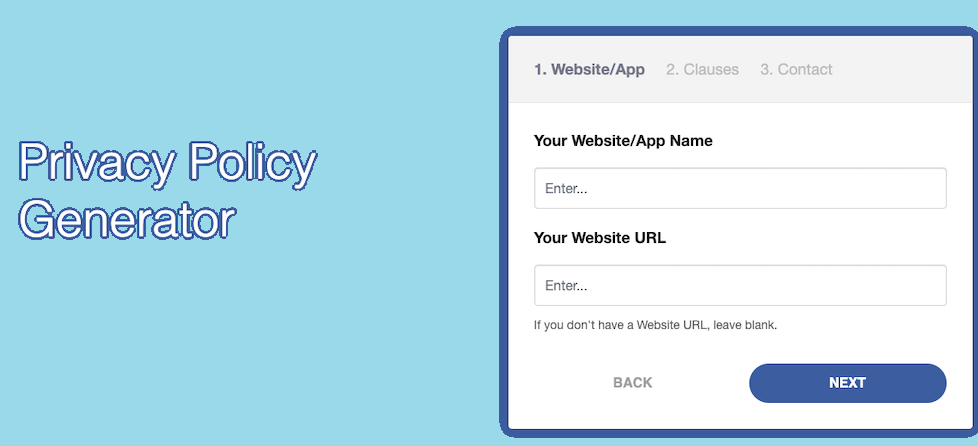

A Privacy Policy is a legal document that explains how a website, mobile app, or other online service gathers, uses and protects the personal information of its users. This includes names, email addresses, phone numbers, and additional information that can be used to find out who someone is.

The Privacy Policy should also say what will be done with the information collected, who will access it, and how users can control their data. Businesses and online services need to have this document because it helps users believe them and ensures they follow privacy laws and rules.
The Privacy Policy should be written in clear, easy-to-understand language so that users can easily understand what information is being taken and how it will be used.
A Privacy Policy Generator is a tool that helps website owners, and app writers make a customized Privacy Policy for their online service. The generator usually asks the user several questions about how they collect and handle data. Based on the answers given, it then automatically creates a Privacy Policy.
Privacy Policy generators can save businesses and people who don't know much about the law or privacy rules time and effort. Users can quickly make a Privacy Policy that follows the law using a Privacy Policy Generator. They don't have to hire a lawyer or spend hours studying privacy laws.
It is a good idea to review the Privacy Policy carefully and talk to a lawyer if necessary. But it's essential to remember that not every Privacy Policy creator is the same. Some may need to cover all legal standards better or be up to date with the latest rules.
Privacy Policy generators ask several questions about how a website or app gets, uses, and protects personal information. The creator will then use this information to make a website or app-specific Privacy Policy.
Most of the time, a Privacy Policy creator will ask things like:
1. What personal information do you get from people who use your site?
2. How do you collect this information?
3. Why do you collect this information?
4. How do you use this information?
5. Who do you share this information with?
6. How do you protect this information?
7. What are the users' rights when it comes to their personal information?
Once you give the Privacy Policy generator all the information it needs, it will make a personalized Privacy Policy that meets all legal standards and best practices for privacy. The Privacy Policy that was created can then be looked over, changed, and put on the website or app.
Conclusion
It's important to remember that Privacy Policy generators can save you time and work, but they might only be suitable for some cases. Sometimes, you may need to talk to a lawyer to ensure the Privacy Policy meets all legal requirements and protects users' privacy well enough.
Our free Privacy Policy Generator can help you meet the standards of the CCPA, CPRA, GDPR, Google Analytics and AdSense.